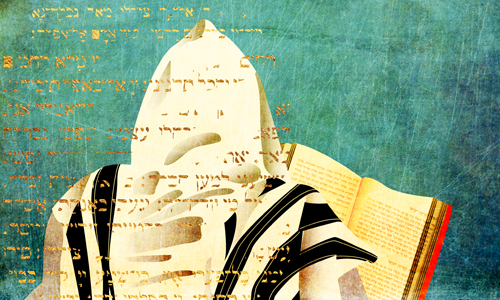What must it be like to live as a Muslim?
by Adam Jones
I sometimes try to imagine what it feels like to live as a Muslim. Muslims have been given a set of rules and laws to live by, found in the Qur'an and the accompanying hadiths. These laws apply to all aspects of life from what to eat, how to dress, how to greet, how to bless, how to do just about anything. As times have changed since the 7th century, there are jurist (interpreters of the laws) who help Muslims understand what is halal (acceptable) and what is haram (forbidden).

The time when Prophet Haroon instituted the first fast in Israel
by Mert Hershberger
Will we feast or fast when failure looms? The world will say, “Let us eat, drink, and be merry for tomorrow we may die.” Have fun while you can. The Lord’s chosen instead set aside their own pleasure when the Lord is displeased that we may humbly seek the Father’s favor once more. When you fast or when you feast, why do you do it? Are you seeking to impress others? Do you mourn over your sins and the sins of your family? Or do you merely meet to taste the flesh of beasts at your feasts? Is your fasting a show or are you truly humbled as Aaron was?

The Biggest Challenge You Will Ever Face
by Abdul-Muslimeen
Understanding the idea of human beings giving up something in order to obey our Creator’s will and to please Him with our lives comes naturally for us. It makes sense to our minds that somehow our self-sacrifice would make us closer to God. The Almighty is high above us, and we feel we must stretch up to meet His requirements by whatever means He has commanded. It is not so easy to grasp the idea that God would sacrifice anything for us. To some it is contrary to the very definition of God.

Why everybody esteems personal sacrifice to benefit others
by Bob Kozal
Scientists cannot determine why we would give up something that would normally be beneficial to ourselves in order to help someone else. The sacrifice of our own lives runs counter to all of our supposed biological and emotional impulses. But it isn't just the sacrifice or giving up of our lives that is confusing. I am referring to the small-acts-of-kindness sacrifices where we freely give away money and time that we would normally use to improve our own lives.

Commentary on the theology behind fasting
by John Frazier and Marty Smithhart
When we think of fasting, we think of religion, sacrifice and self-denial. When we do a religious act, the most important thing is truth, followed by sincerity. Are we acting for ourselves, for others, or truly for God? This is the problem when fasting is performed to fulfill an institutional requirement. It takes deep soul-searching to make sure that obedience is deep, honest devotion, not surface, hypocritical piety. There is no benefit for anybody in hypocritical religion. And it is not necessary for others to know if the fasting is truly just between us and God.

